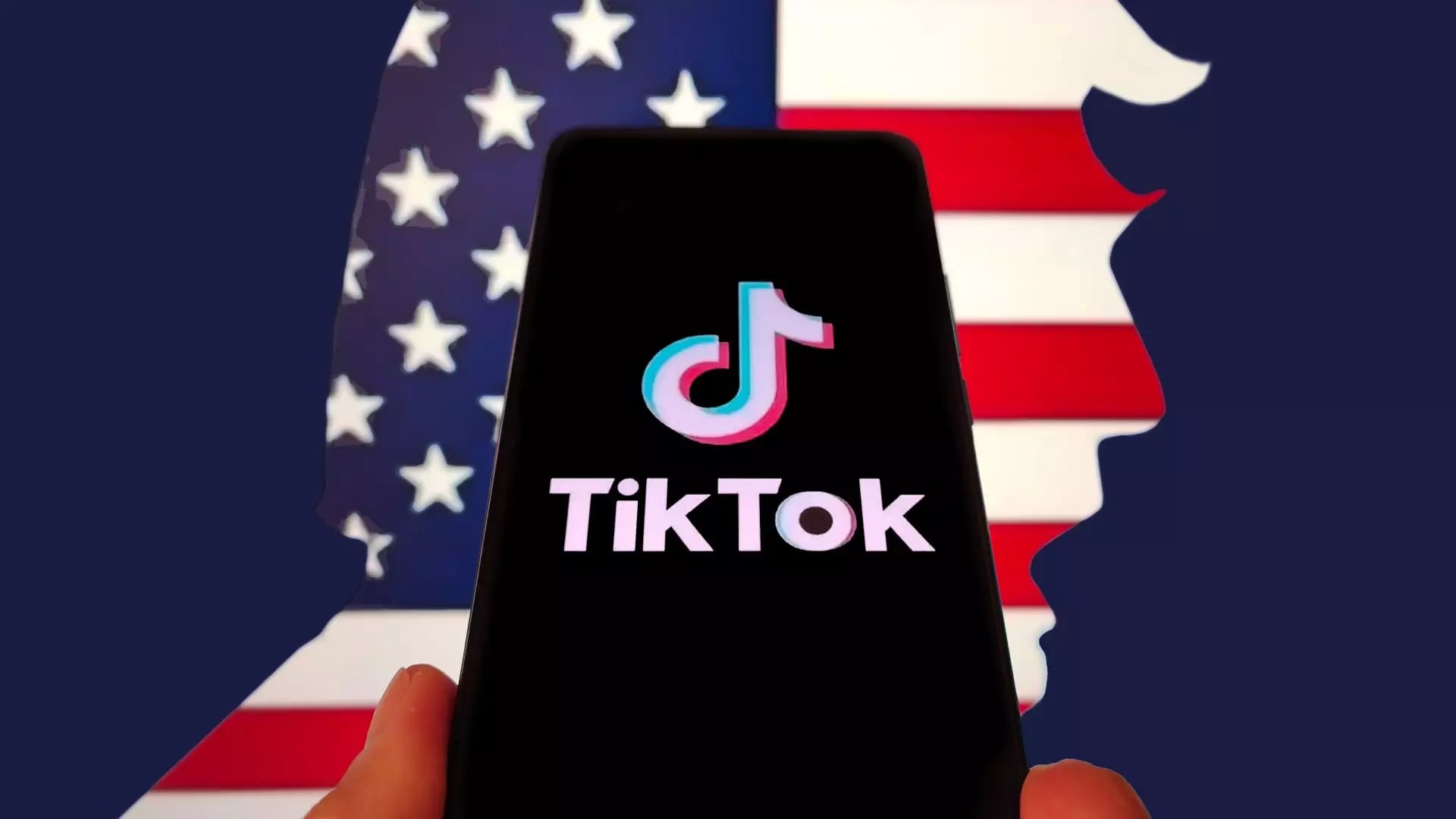The recent churn surrounding TikTok’s presence in the Apple App Store exemplifies the political and economic gymnastics that characterize modern digital commerce. As Apple’s commitment to hold onto ByteDance-owned TikTok for an additional 75 days materialized, fueled by assurances from Florida’s Attorney General Pam Bondi, one must question the implications of such a move amidst the broader national security narrative. This scenario is not merely a business decision; it sharply underscores the intersection of tech innovation, governmental authority, and geopolitical rivalry.
It’s startling how a platform, remarkably popular yet embroiled in a whirlwind of controversy, continues to thrive in an environment that screams caution and distrust. Apprehension over data privacy and national security has led the U.S. to manipulate digital marketplaces as bargaining tools. While on the surface, this extension appears to be a reasonable compromise, it reflects a disturbing trend: the politicization of technology creates an ecosystem not defined by merit, but by the whims of leaders who may prioritize political gains over consumer choice and market competition.
Political Leverage and Corporate Responsibility
When former President Donald Trump intervened, extending the ban deadline while imposing hefty tariffs on China, it was clear that business operations could be sacrificed for the sake of political posturing. This raises urgent questions: Are American companies being coerced into compliance with political agendas? Certainly, Apple’s bloc of loyalty to TikTok, executed with Bondi’s explicit assurances, suggests a precarious balancing act. Furthermore, how often do we see technology corporations stepping in to be a line of defense against government overreach when economic interests are at stake?
What is most concerning, however, is the rapid normalization of these backdoor negotiations, positioning technology firms as pawns in an escalating geopolitical conflict. If Apple, a titan in the tech world, bows to political pressure in this matter, what might that imply for smaller companies that lack the same resources and influence? As consumers, we need to remain vigilant and question who truly controls our digital lives.
The Tariff Tango
Trump’s administration has taken a rather theatrical approach to tariffs, with a staggering cumulative 54% levied against goods from China. When combined with the TikTok situation, they create a spectacle of commerce where negotiation devolves into a dangerous dance. The president’s casual comments about potentially reducing tariffs to facilitate ByteDance’s sale of its U.S. operations speak volumes. Business decisions should derive from strategic planning, not from the whims of a political narrative focused on an adversary.
This tariff imbalance indicates a struggle not just for dominance in the marketplace but a fight to reclaim a psychologically pervasive narrative around American interests and security. As a center-right liberal, I find myself cautiously supporting the notion of outmanoeuvring geopolitical adversaries; however, I am simultaneously alarmed by the erosion of our economic sovereignty as companies grapple with shifting landscapes shaped by hastily-crafted legislation and executive orders.
With the digital realm increasingly coming under the microscope of national security, it is imperative for consumers and stakeholders to demand transparency and safeguard corporate integrity. It’s time to redefine the discourse around tech platforms—not as mere applications, but as vital players in a global chess game fueling an increasingly interconnected yet tumultuous world.


Leave a Reply